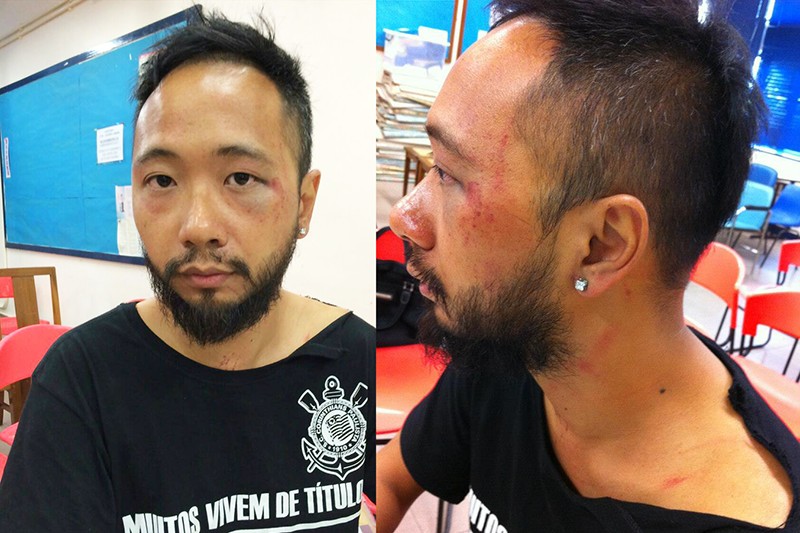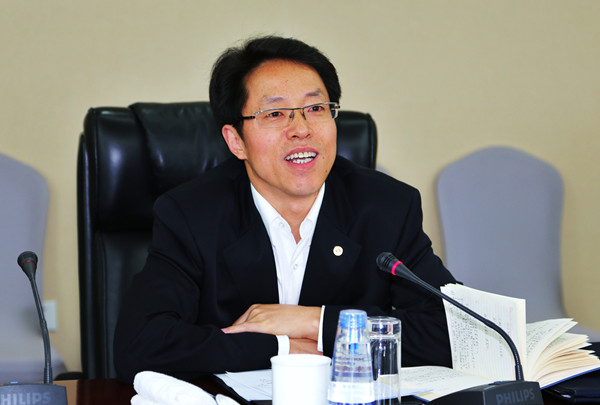On 15 October 2015, pro-democracy activist Ken Tsang Kin-chiu was charged with assaulting and obstructing Hong Kong police. This announcement was shortly followed by the decision to prosecute seven police officers accused of openly beating him in a dark corner of Tamar Park during the Occupy protests one year ago. The officers face charges of wounding or striking with intent to cause grievous bodily harm.

Despite an explanation given by the Secretary for Justice as to why it took a year to bring these police officers to justice, the timing of the decision to prosecute Tsang smacks of the Hong Kong government using law as instrument to suppress political opponents. Although Hong Kong is not a democracy, it enjoys an envious reputation of being a place where the rule of law prevails. But several recent decisions and events suggest that Hong Kong has started taking baby steps towards the rule “by” law under Beijing’s influence.
The difference between the rule of law and the rule by law is fundamental. Whereas the former constrains powers of the ruling authorities by enacting just laws which are fairly applied under the vigil of independent courts, laws are merely an instrument to sustain powers and policies of the government. Under the rule by law, the inherent flexibility of legal texts coupled with governmental discretion are employed to adopt interpretations or take decisions which serve the goals set by the authorities in power.

Let us consider a few examples to understand this changing dynamic. The Standing Committee of the National People’s Congress (NPCSC) undoubtedly has the power to interpret the Basic Law. This constitutional power, however, should only be exercised consistent with the Basic Law provisions and ethos. The NPCSC should not, for example, use this power to destroy the “two systems” limb of the “one country two systems” principle. But that is exactly what the NPCSC’s August 2014 decision tried to do: by specifying that the Nominating Committee “shall nominate two to three candidates” and that “each candidate must have the endorsement of more than half of all the members of the nominating committee”, the NPCSC basically amended Article 45 of the Basic Law in breach of amendment process stipulated in Article 159. This interpretation was clearly adopted to deny pan-democrats any chance of being a candidate for the Chief Executive election in 2017.
A more recent example is provided the University of Hong Kong’s Governing Council deciding not to appoint Johannes Chan as the university’s pro-vice chancellor. Although the Council has this power under the law, the manner in which the power was exercised leaves no doubt about the ulterior reasons behind the decision. This decision has in effect created an additional unwritten qualification for appointment to positions of power in Hong Kong: that one must not espouse causes which are critical of the Chinese legal or political system. Beijing’s insistence that the HKSAR’s Chief Executive must “love China” has now been extended to any position of power in Hong Kong which is considered potentially sensitive by the central authorities.

The speech given by Zhang Xiaoming, director of the central government’s liaison office in Hong Kong, on 12 September 2015 makes explicit the intent of central authorities to use the Basic Law to undermine precisely the very goals for which this law was enacted. By articulating that Hong Kong’s Chief Executive has “a special legal status that transcends the executive, legislature and judiciary“, he has tried to nullify several provisions of the Basic Law related to check and balances, separation of powers, equality before the law, judicial independence and judicial review. Going by this logic, there would be no need to subject the Chief Executive to the anti-corruption legislation or any other law for that matter.
Over the years, Chinese authorities have made efforts to establish a society governed by the rule of law. In practice, however, the gap between the two systems is still quite significant. It would be mutually beneficial if the mainland China’s system in future came closer to Hong Kong’s system rather than the other way around. In the interim, this apparent march of Hong Kong towards the rule “by” law should be checked sooner than later. Else, soon there would be no significant differences in practice between the legal systems in mainland China and Hong Kong when it came to dealing with politically sensitive cases. Or is it the plan to inject the mainland’s blood into the veins of the politico-legal system of Hong Kong much before 2047? Let the gloves be off.
